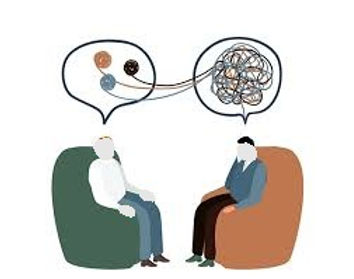The Essence of True Empathy
- Yanky Sigal

- Feb 26
- 3 min read
Updated: Jun 15
The Gemara in Bava Metzia 58b provides a powerful foundation for discussing empathy by addressing אוֹנָאַת דְּבָרִים (verbal oppression)—the emotional pain we cause others through our words.
We might assume that this refers only to situations where someone is openly embarrassed. However, this Gemara teaches that even when we believe we are speaking with good intentions, if our words lack genuine empathy, they can still cause harm. This Gemara is a crucial source for understanding empathy in all relationships and identifying common mistakes people make when trying to be empathetic.
The Gemara teaches: One must not say to a repentant sinner, 'Remember your past deeds.' One must not say to a convert, 'Remember the deeds of your ancestors.' And if one suffers and asks for comfort, do not say, 'It is because of your sins that this has happened to you.'”
This passage highlights how words can be deeply wounding and how a lack of sensitivity can turn an opportunity for empathy into a moment of harm.
This Gemara provides a framework to understand true empathy by teaching us what not to do. Many people intend to be supportive but make common mistakes that invalidate others' experiences.
Here’s how this applies to different situations:
Validating Pain Instead of Blaming
Mistake: "You must have done something wrong for this to happen to you."
Better Approach: "I'm so sorry you're going through this. It must be very painful."
The Gemara warns against blaming the victim. Many people struggle with the urge to explain suffering rather than simply acknowledging the pain.
Instead of trying to rationalize why something happened, true empathy is about sitting with someone in their pain, not offering unsolicited explanations.
The first step to empathy is validation—acknowledging someone’s suffering instead of looking for reasons or solutions.
Seeing a Person for Who They Are Now
Mistake: "I remember when you used to be so irresponsible."
Better Approach: "I admire how much you've grown."
The Gemara forbids reminding a baal teshuva (a person who has repented) of their past sins.
People often make the mistake of holding others to their past mistakes, even when they have changed.
Empathy means allowing someone to grow without reminding them of their failures.
True empathy sees a person for who they are now, not who they were.
Understanding Instead of Judging
Mistake: "I had it worse than you; why are you complaining?"
Better Approach: "I can see that this is really difficult for you."
People often minimize others' pain because they compare struggles rather than listening.
The Gemara’s prohibition against telling someone, “This happened because of your sins,” teaches that everyone’s pain is real and valid—it’s not for us to judge why they are suffering.
Telling someone their pain is "not a big deal" only makes them feel alone.
Empathy means seeing the world through someone else’s eyes, not through our own perspective.
Making Space for Everyone
Mistake: "You're not really one of us."
Better Approach: "You are fully part of our people and valued."
The Gemara specifically prohibits reminding a convert about their past.
A common failure in empathy is making people feel like outsiders instead of fully accepted.
Many people unintentionally ostracize those who are different—whether due to background, status, or struggles.
Empathy means embracing others wholeheartedly—recognizing their inherent value and belonging."
True empathy is about being present, validating without judgment, and accepting people for who they are.



